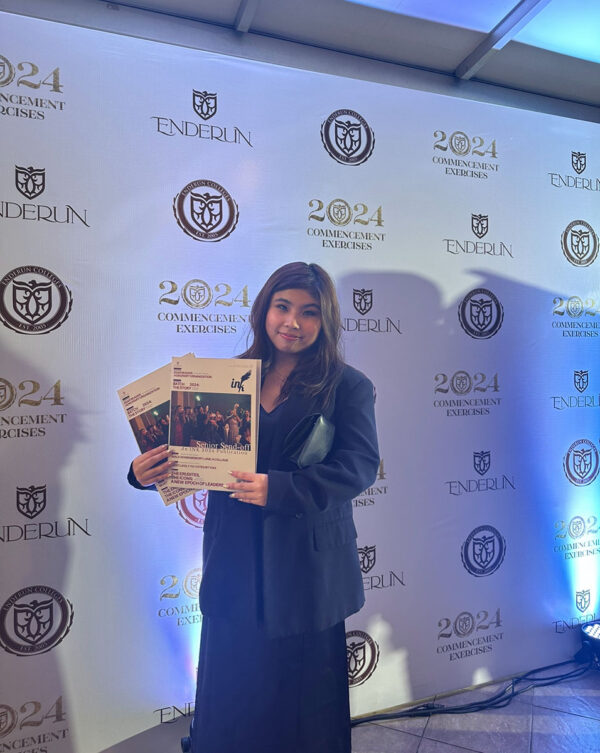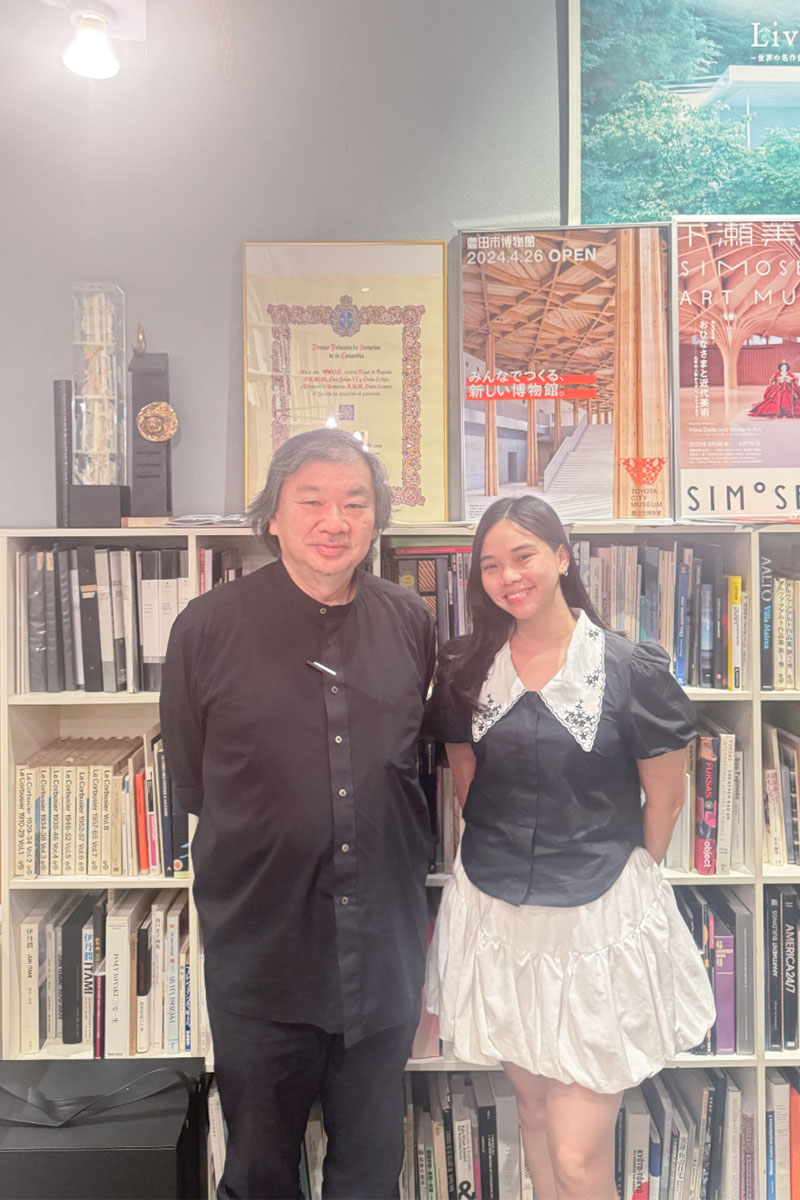When Chevy Klein Tan walked across the stage as valedictorian of Enderun Senior High School, she wasn’t just closing a chapter – she was stepping into a future deeply rooted in leadership, diplomacy, and global citizenship. Now a Bachelor of Science in Economics student at Enderun Colleges, Chevy continues to blend academic excellence with a clear-eyed vision for international affairs.
“I’ve always had an affinity for collaboration and teamwork,” Chevy reflects. “Even in group assignments, I made it a point to listen to everyone’s perspective and use those ideas as stepping stones toward an ideal result.” This inclusive mindset eventually pushed her toward leadership roles where she could combine her passions – debate, writing, and governance into impactful student-led initiatives.
Her time at Enderun SHS provided the perfect platform. Whether it was hosting student podcasts through Enderun Unmuted or leading the INK student newsletter as Editor-in-Chief, Chevy gained confidence and clarity. “These platforms taught me to connect, to listen, and to lead with compassion.”
Chevy’s decision to pursue BS Economics was more than a strategic move – it was a calling reinforced by mentors and experience. “Enderun was always a family dream because of its international programs and internships,” she shares. With encouragement from her high school teachers, she chose Economics, finding strong mentorship in professors like Mr. Paul Correa and Mr. Ronan Santors.
“I began to understand how economics is deeply tied to diplomacy. Statistics, trade, labor—these all shape global policy.” Far from being just a number-heavy course, Economics at Enderun has trained Chevy to become a sharper thinker, a stronger speaker, and a leader with vision.
Chevy currently served as Chair of the UNODC Committee at the PHIMUN 2025, a role that perfectly fuses her love for global policy and mentorship.
“I wanted to be firm but kind,” she says, describing her leadership style. “Model UN can be overwhelming, especially for first-time delegates. My goal was to create a safe, constructive space where they could grow without fear of unjust criticism.”
Together with the PHIMUN Secretariat, Chevy helped ensure that delegates not only engaged in simulated diplomacy but were pushed to understand their assigned countries, consider ethical use of AI in drafting resolutions, and formulate practical, realistic solutions. “It was diplomacy in action and a great lesson in responsibility.”
While she chaired the UNODC committee, it was the ECOSOC-CSW track that caught Chevy’s attention for its timely, intersectional focus.
“Topics like the economic inclusion of women in informal labor markets and accessibility to contraception through socioeconomic policy really stood out,” she explains. “These are issues that matter deeply to this generation, especially in Southeast Asia.”
Her academic training has made these global topics even more tangible. In her Macroeconomics class, she studied how history shapes current policies. A standout project? Analyzing how Singapore won the bid to host Taylor Swift’s Eras Tour – a surprising but insightful case on soft power and economic diplomacy.
“It sounds unconventional,” she admits, “but pop culture has immense influence. Tourism, policy incentives, even international relations can hinge on events like this. That’s what I love about Economics – it trains you to see every angle.”
So what sets Enderun apart?
“Freedom,” Chevy says without hesitation. “We’re encouraged to think independently, collaborate externally, and pursue creative angles in traditionally rigid disciplines. My mentors have always supported combining business acumen with diplomatic dialogue—an essential approach in today’s global economy.”
She credits faculty members like Atty. Fred Cruz, Ms. Priya Ramnani, and her early SHS teachers for pushing her to challenge assumptions. “They taught me that reform isn’t just about good intentions – it’s about understanding frameworks, institutions, and the real-world dynamics that drive change.”
Chevy envisions a future working with international institutions like the ASEAN Foundation, EU, or UN but she’s open to wherever diplomacy takes her. Whether it’s joining an embassy, contributing to policy development, or simply promoting civic awareness, she remains committed to her mission.
“As someone who struggled in her first year of college, I want younger students to know: keep going. Diplomacy can be disheartening. You’ll see alliances break, policies fail, people in power ignore those they’re meant to protect. But that’s why your involvement matters.”
Her message is clear and powerful:
“Be tough – not for recognition, but for the people who are sidelined. For the future that still needs protecting. Every step you take in this field is a step toward making someone’s life better.”





